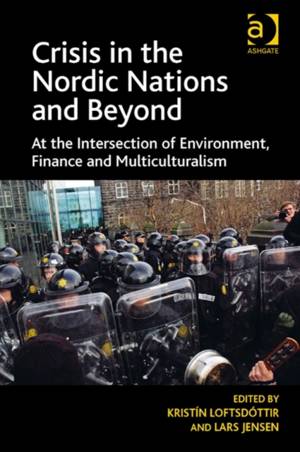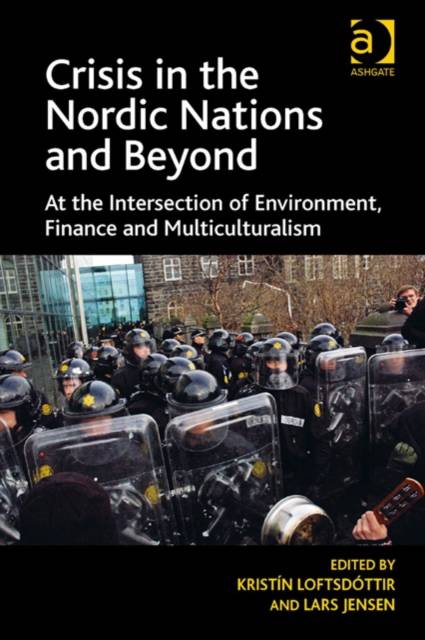
- Afhalen na 1 uur in een winkel met voorraad
- Gratis thuislevering in België vanaf € 30
- Ruim aanbod met 7 miljoen producten
- Afhalen na 1 uur in een winkel met voorraad
- Gratis thuislevering in België vanaf € 30
- Ruim aanbod met 7 miljoen producten
Zoeken
Crisis in the Nordic Nations and Beyond
At the Intersection of Environment, Finance and Multiculturalism
Kristín Loftsdóttir, Lars Jensen
Hardcover | Engels
€ 202,95
+ 405 punten
Omschrijving
With discourses of 'crisis' and 'disaster' featuring strongly in contemporary discourses on contemporary society, this book brings together critical perspectives from across the humanities and social sciences to explore the idea of 'crisis' as inherently related to power dynamics and the formation of different subjectivities and identities within the Nordic countries and globally. This volume emphasizes the importance of investigating the interrelationship of three crises - social, economic and environmental - as these address the interlinked surfaces of the same reality, and it examines the negative connotations of the notion of crisis, whilst also raising the question of when and why something becomes identified as crisis, and for whom. With chapters on media representations of crisis and the global context of crisis discourses, the crisis of national identities and their mobilization in response, and environmental crisis, as well as the interrelationship between the social and the environmental and the different positioning of individuals in relation to power, this volume offers an understanding of crisis as a multivocal symbol of the present. As such, it will appeal to scholars of sociology, anthropology, history, cultural studies, literature and political science.
Specificaties
Betrokkenen
- Auteur(s):
- Uitgeverij:
Inhoud
- Aantal bladzijden:
- 200
- Taal:
- Engels
Eigenschappen
- Productcode (EAN):
- 9781472425386
- Verschijningsdatum:
- 10/12/2014
- Uitvoering:
- Hardcover
- Formaat:
- Genaaid
- Afmetingen:
- 156 mm x 233 mm
- Gewicht:
- 459 g

Alleen bij Standaard Boekhandel
+ 405 punten op je klantenkaart van Standaard Boekhandel
Beoordelingen
We publiceren alleen reviews die voldoen aan de voorwaarden voor reviews. Bekijk onze voorwaarden voor reviews.











